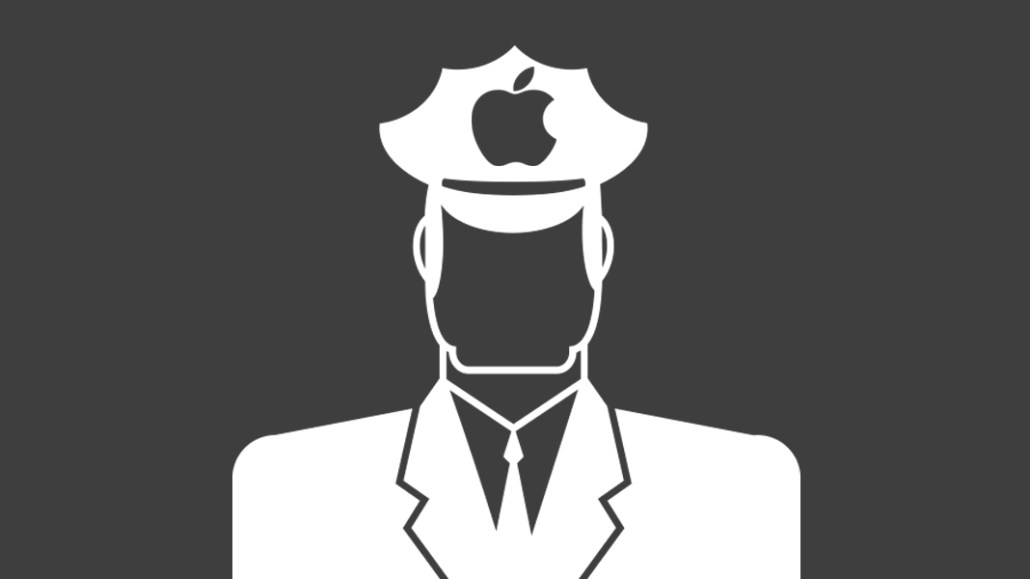Secure your place at the Digiday Media Buying Summit in Nashville, March 2-4
Confessions of a media executive: ‘As an Apple user, I love what they’re doing’

This article is part of our Confessions series, in which we trade anonymity for candor to get an unvarnished look at the people, processes and problems inside the industry. More from the series →
Privacy is the single biggest challenge facing the contemporary digital media sector as there is growing public unease with the extent of online information advertisers can access which has prompted governments to take action.
The global movement spurred abbreviations such as CPRA or GDPR that are now indelibly etched on the marketing landscape with the internet’s largest platforms subsequently making changes that have upended the earlier digital orthodoxy.
Google’s Privacy Sandbox efforts — aimed at finding a “replacement” for the ubiquitous ad targeting tool inside Google Chrome — have come under much criticism. Although, even Google’s most ardent critics will concede that Apple’s approach to ushering in a more privacy-centric era has been much more traumatic.
In fact, those forming Apple’s privacy policies were reportedly labeled “political opportunists” with a mission to “cripple the advertising industry…” by IAB CEO David Cohen this week at the trade organization’s flagship annual gathering.
Although, not all are in complete agreement with such confrontational language.
In the latest edition of our Confessions series, in which we exchange anonymity for candor, a leading media executive shares thoughts on such hot-button issues.
This conversation has been edited and condensed for clarity.
Just what to do people in the industry think about Apple?
Some publicly talk about Apple as the enemy within, but I think the challenge there is that, and a lot of people say this, ‘As an Apple user, I love what they’re doing…’
I mean, by far they’ve been the best when it comes to building up trust and confidence with their user base when it comes to taking data privacy seriously. The irony is that, if other parts of the industry would have taken privacy more seriously over the years, then we wouldn’t be in this mess.
So, labeling them as the enemy may be a step too far, but I think everybody would love to have their thinking and involvement but I remain skeptical as to whether that happens or not.
A lot of people talk about such platforms as the defacto global regulators given their scale, what are your thoughts?
Trying to come up with a single data protection and identity solution that works across the U.S., and ideally across the globe, is no easy feat, that’s going to require a lot of deep thinking.
Keeping up with it is difficult, as each time you turn around there’s another state or country that passes a piece of legislation, and none of them really match.
The question the industry is trying to answer is how to find a balance between something that is broad enough, and specific enough, that can also anticipate what may happen in the future.
A lot is being made about how Apple may challenge those currently leading the industry, what are your thoughts?
There is a definite sense that the gravy train is over for the duopoly of Facebook and Google, I can tell you that much. But, y’know, these are big companies and they’re not going to disappear overnight, you’d be foolish to believe that.
Although, I’d say their ability to hire anyone at a whim is probably over. Right now there’s a lot of discussion about how things such as Microsoft’s investment in things like ChatGPT may be a real threat to the search business.
Then, with things like TikTok threatening YouTube and taking up more of the social media side of things, I think you’re going to start to see the duopoly take a long hard look at their business models in the year(s) ahead.
More in Media

From feeds to streets: How mega influencer Haley Baylee is diversifying beyond platform algorithms
Kalil is partnering with LinkNYC to take her social media content into the real world and the streets of NYC.

‘A brand trip’: How the creator economy showed up at this year’s Super Bowl
Super Bowl 2026 had more on-the-ground brand activations and creator participation than ever, showcasing how it’s become a massive IRL moment for the creator economy.

Media Briefing: Turning scraped content into paid assets — Amazon and Microsoft build AI marketplaces
Amazon plans an AI content marketplace to join Microsoft’s efforts and pay publishers — but it relies on AI com stop scraping for free.








